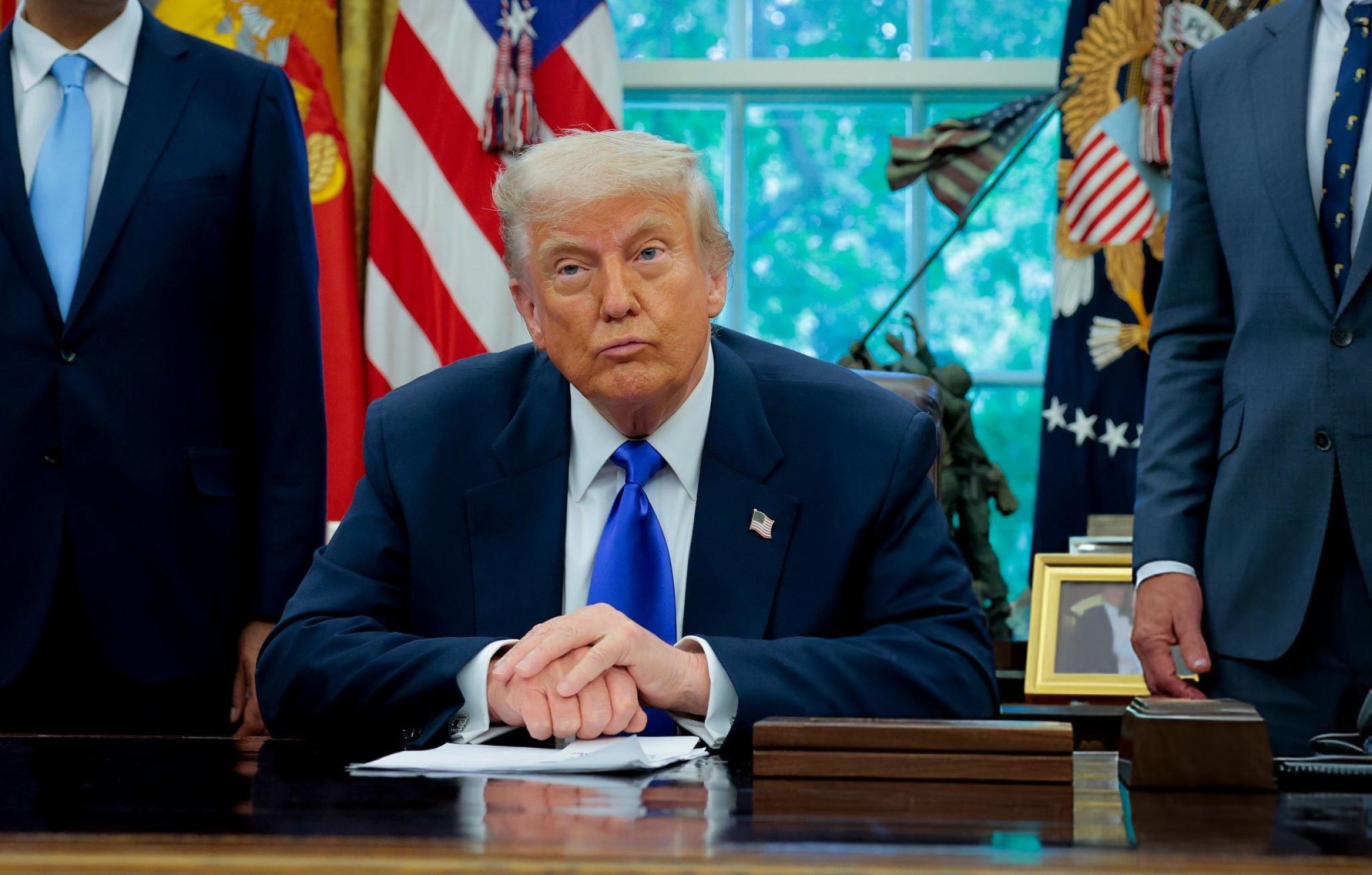Trump’s UK trade deal sends clear message to Canada: Tariffs aren’t going anywhere
In a move watched closely by Canada and other U.S. trading partners, former U.S. President Donald Trump’s preliminary trade agreement with the United Kingdom suggests that while his administration may allow modest tariff reductions, it remains committed to using duties as a central tool in reshaping global trade.
Announced thursday, the agreement is still awaiting finalisation, but Trump made it clear that the framework reflects his ongoing effort to assert U.S. economic interests. “The final details are being written up,” he said from the oval office. Despite its provisional status, the deal underscores Trump’s preference for “managed trade” and signals a cautious approach to future talks — including those with Canada.
Trump’s aggressive trade policy began in april with sweeping “reciprocal” tariffs, but after intense backlash, he temporarily softened the blow with a 90-day pause to allow for negotiations. This, however, came alongside the enforcement of significant levies — including a 145% tariff on Chinese goods and 25% duties on steel, aluminium, and automotive imports.
The UK agreement offers concessions on some of these tariffs. For example, steel and aluminium duties will be lifted, and a quota of 100,000 UK automobiles will now face just a 10% tariff. Meanwhile, the baseline 10% tariff on most British imports will remain, according to U.S. Commerce Secretary Howard Lutnick.
The deal also provides benefits to U.S. exporters — particularly beef and ethanol producers — while keeping the UK’s digital services tax under negotiation. Trump’s team has long criticised similar levies, including Canada’s, arguing that they unfairly target American tech giants.
Observers say the UK deal provides a window into what a future U.S.-Canada negotiation under Trump might look like. Fen Osler Hampson, a leading Canadian expert on international relations, noted that while Trump appears open to dialogue, he shows no inclination to fully roll back tariffs. “It shows that the Trump administration is amenable to negotiation,” said Hampson. “But the reality is, we are entering an era of managed trade.”
Canada has already experienced Trump’s unpredictable trade tactics. Despite being excluded from the 90-day deal window Trump offered other countries, Canada was slapped with economywide tariffs in march, justified by Trump as a response to the flow of fentanyl across the border. These were later partially eased for goods compliant with the Canada-U.S.-Mexico Agreement (CUSMA), negotiated during Trump’s first term.
Still, tariffs on steel, aluminium, and cars remain, though vehicles with a high percentage of U.S.-made components receive some relief. But the new UK deal has raised concerns among north American auto industry stakeholders. Matt Blunt, President of the American automotive policy council, warned the arrangement gives UK automakers an unfair advantage, stating, “It will now be cheaper to import a UK vehicle with very little U.S. content than a CUSMA-compliant vehicle from Mexico or Canada.”
This disparity has prompted fears that future deals with other regions might also undercut North American interests. Blunt called on U.S. negotiators to avoid setting dangerous precedents with preferential access that disadvantages continental partners.
Still, there are signs of a thaw in U.S.-Canada relations. Trump’s recent meeting with Canadian Prime Minister Mark Carney was cordial, marking a shift from previous tensions. Trump referred to CUSMA as “still very effective,” suggesting he sees value in the agreement. Carney, for his part, offered praise, calling Trump a “transformational” figure.
According to Christopher Sands of Johns Hopkins University, the improved tone could bode well. He credited UK Prime Minister Keir Starmer’s calm and persistent diplomacy for the progress on tariffs and suggested a similar style might serve Carney well in talks with Washington.
Nevertheless, Canada may still need to contend with continued tariffs even under a successful negotiation. “If CUSMA stays in place, not only can we live with Trump’s tariffs — if they are lower, we may actually benefit vis-à-vis other countries,” Hampson noted.
But Trump’s broader worldview on trade remains an obstacle. Henry Olsen of the public policy Center said Trump will insist on reducing the U.S. trade deficit with Canada, despite overstatements about its size. “That will be extremely difficult for Prime Minister Carney to do,” Olsen said bluntly.
In short, Trump’s UK trade pact points to a future in which tariffs remain a permanent fixture of U.S. trade policy — and Canada would be wise to prepare accordingly.






